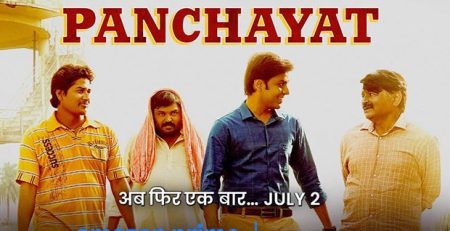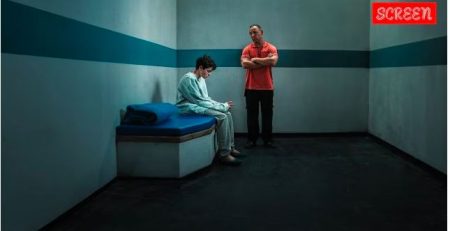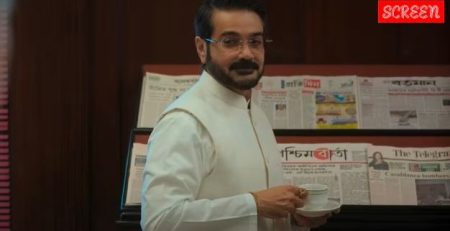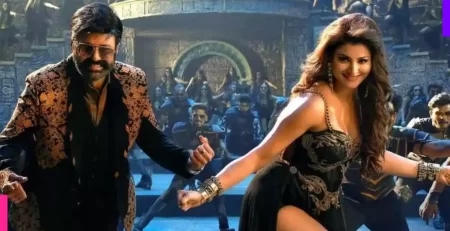Caste, class and a special brand of sexism: Chhotolok, Bengal’s best web series is defiantly feminist
Share this post
At times, watching Bangla web content is like wading into someone else’s nightmare – people talk in bad puns, old Kolkata houses turn into slaughterhouses, an orgasm is almost always followed by a murder and femme fatales come wrapped in laal paad sarees. It’s a situation you have no control over, but you still hope for the impossible. That if you try hard enough, you can restitch the fabric of their sleep.
For years, Bangla content (and indeed, cinema) consumers have been patiently waiting for that impossible thing. A well-made, nuanced web series. Anirban Bhattacharya’s 2022 show Mandar tried to push the envelope, but it was followed by an avalanche of mediocrity. Sloppy detective shows, where top-line Bengali male stars take turns to play Byomkesh Bakshi or Feluda. Then there is the very specific sub-genre that I call the ‘North Kolkata domestic thriller’, where newly-wed Bengali brides find themselves in the middle of very Bengali mysteries involving maach (fish), mishti (sweets) and more. Someone has placed a poisonous leaf in the belly of a prized bhetki fish, someone has intentionally split the milk for the kheer that the bride is supposed to serve, you get the drift.
Indranil Roychowdhury’s new show, Chhotolok (ZEE5), thankfully, is a rare departure. It’s a layered thriller headlined by a lower caste female protagonist (the deliciously good Daminee Benny Basu), whose world-weariness shows in every crinkle of her forehead, every decision she makes. It’s not surprising that caste is almost invisiblised in bhodrolok Bengali drawing rooms, but boundaries are drawn nonetheless. Indranil seems to be acutely aware of that. Which is why, you don’t get ham-fisted Dahaad moments in Chhotolok. Here sub inspector Sabitri Mondol (Basu) is subjected to a more subtle kind of bigotry, the genteel Bengali way of saying you are not good enough to breathe in the same air that they breathe.
The title of the show, Chhotolok, itself is a blanket term used by the bhodrolok Bangali to define the disadvantaged class or people from the fringes. In a lot of ways, the thriller explores the clash of the bhodrolok and the chhotolok. The setting is defiantly unglossy, unsepiatoned Kolkata. It’s a city testing its limits. Residential flats with wafer-thin walls line its ever-expanding borders. Young people with lust for the good life inhabit these flats. The opening shot is that of a murder scene. One such flat is where an upcoming model (Rupsa), also a part-time escort from the suburbs, lived amidst middle-class Bengali households. She is the murder victim. A chhotolok among bhodroloks. After the body is discovered, the girl’s flat becomes a selfie point. Women (and men) from the neighbourhood descend upon the flat to explore her walk-in cupboard, comment on her shoe rack (lined with stilettos) and casually go through her laundry basket, caressing the lacy underwear. Until Sabitri Mondol, fresh from her morning prayer rituals, interrupts the melee. Mondol is in charge of the case and is ably supported by a junior inspector, Jamil (Pratik Dutta). A lower caste woman and a Muslim man surrounded by bhodroloks.
Soon, we are introduced to the main suspects of the murder, Raja Bhattacharya (Gaurav Chakraborty), the son of a powerful politician Mohor Bhattacharya (Indrani Haldar). Raja was in an unhappy marriage with Mallika Das (Priyanka Sarkar) and was one of Rupsa’s clients. Then there is a shady boyfriend (nothing like the shady boyfriend stereotype though) and a powerful dealer. We witness how these characters interact with each other and are gently nudged to observe the undercurrents of their equation. In a revealing flashback scene, Mohor, the powerful woman politician who had to overcome an abusive relationship to embrace her political career, is introduced to her prospective daughter-in-law, Mallika. “What is your surname,” she asks. “Das,” Mallika answers. “What kind of Das?”, Mohor asks. “Not the Kayastha Das,” Mallika answers. Which means she is not the right kind of Das for Mohor, a Bhattacharya, a Brahmin.
Sabitri, whose supportive husband, Rudra (Shubhrajit Dutta), is again not a stereotype of a supportive husband, is given his moments of doubts and exasperated meanness. He complains while making up for his wife’s impossible hours, but is always up to the task. Sabitri is cloyingly subservient with her boss, never raising her voice, never confronting him to get her work done, always politely navigating the conversation to her advantage. She knows her place in the equation and knows how to play it well.












Leave a Reply